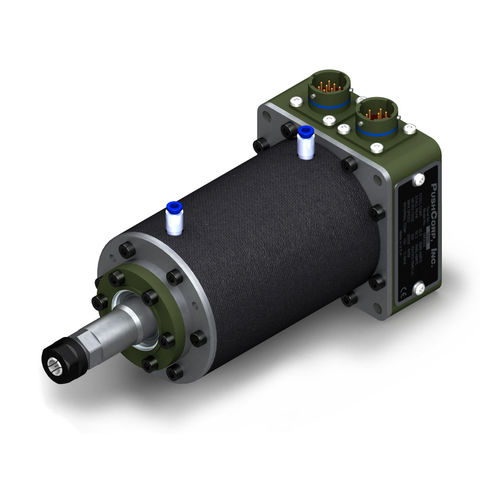High Speed Servo Motor
The PushCorp SM2002 is a 2.0 horsepower (1.5 kW) High Speed Servo Motor that has been developed as an alternative to inefficient and high maintenance air motors. The unit uses a 20,000 rpm, water cooled, servo motor to produce exceptional performance in a compact and light weight package. The motor utilizes a manual ER Series collet that has the ability to clamp a very wide range of tool shaft diameters. With a manual collet operator intervention is required when the media needs to be replaced. For applications where the abrasive media or the tools have a long life the manual collet is the ideal solution.The SM2002 can be easily mounted in any orientation using the thru holes provided in the motor housing.
SM2002
Features
2.0 horsepower (1.5 kW) servo motor (Liquid Cooling Required)
20,000 maximum RPM (Reversible)
Fully adjustable and reversible speed
Manual ER Series collet
Collets available from 1/16 - 1/4 inch (.5mm - 7mm)
Sealed ceramic bearings for long service life
PushCorp proprietary high-speed shaft seal
Mounts directly to PushCorp Active and Passive compliant tools
± 5% speed regulation
All fittings, fasteners, and threaded holes are METRIC


